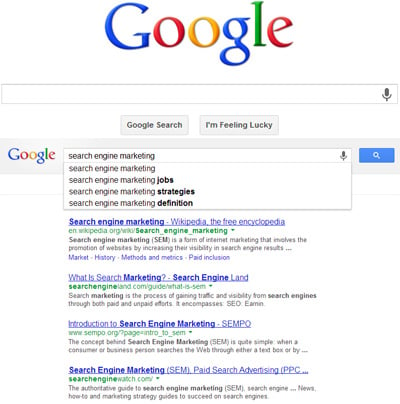- Jun 6, 2013
- By Alicia Bertsche
- In Marketing Strategy and Planning, Website Design and SEO, Content Marketing



We're always thinking, discovering and sharing our knowledge of how to connect with customers in the digital age. Here we share some of those thoughts.

 “We’re getting great results with our pay-per-click (PPC) search strategy. Why would we invest more money in a strategy that takes us longer to achieve results?”
“We’re getting great results with our pay-per-click (PPC) search strategy. Why would we invest more money in a strategy that takes us longer to achieve results?”
Or so potential customers often ask when we talk about why blogging for business is the most important component of a company’s search strategy. On the surface, pay-per-click makes sense – if you’re getting traffic from a paid search strategy, why bother with anything else?
There are a few different answers to that question.
1. PPC doesn’t provide any residual value.
When a user interacts with an online paid placement ad, that’s generally the end of its usefulness. You’ve directed traffic to your site. Hopefully you’ve landed them on a page that has answers for their internet search. If not, the typical internet user’s reaction is to hit the “Back” button and pick the next result on the search. You pay your ad server for those clicks whether or not the visitor makes a purchase.
Blogging works a bit differently. The goal is to create content that answers questions that searchers are asking in an interesting way. Those answers and information bits live on the internet forever, they don’t go away at the end of a month’s billing period or when you hit your daily spend limit. They allow future internet users to find your answers just as readily as those who are searching in the moment. And blogs are shareable as well. There’s no easy way or reason, really, to share a PPC ad. Have an interesting blog post and your readers will share it in their social media circles.
2. PPC ads don’t lend credibility to your brand the way a business blog does.
There’s nothing quite like an in-your-face advertisement to turn off consumers to your brand. In fact, 70% of the links search users click are organic, not paid. It’s the same mentality behind DVR usage. People are less inclined to pay attention to advertisements that get in the way of the content they really want. If your goal is to be a leader in your market or industry, you won’t accomplish it through PPC ads. You need to establish your brand as a credible authority on topics related to your product or service, which can’t be done in a 35-character ad.
3. PPC isn’t a long-term strategy.
If you’re running a campaign right now, you know the costs of PPC. It can take a lot of effort and money. You need to develop a strategy that allows you to bid on the correct search terms and spend enough money bidding to receive placement without blowing your marketing budget. Every month.
In business blogging, the goal is to build an archive of keyword-rich pages for search engines to crawl through and add to the index of pages they can serve up in search results. The more pages you have that cover a particular topic, the higher the chances that your website will rank for terms related to the topic. And those pages don’t disappear at the end of a billing cycle.
4. Blogs present more conversion opportunities.
Each page on your website represents one opportunity to convert a website visitor into a lead. Right now, you probably have one webpage that covers each product or service you offer. For five services, you would have individual webpages describing each one. Add in your home page and a contact page for a total of seven conversion opportunities. With a business blog that discusses topics relevant to your target audience, you have more opportunities for conversion. Selling widgets? Write a blog about a a business problem that widget owners often face. Have a call to action that directs readers to your widgets, and you score one more conversion opportunity.
5. Companies that blog get more leads.
In fact, B2B companies who blog generate 67% more leads per month than companies who don’t. Why? Because they’re creating more indexable pages that can be found more often by more people. This creates more conversion opportunities, and amplifies a business’ reach by creating shareable content. You can’t get that from PPC.
When you’re deciding where to spend your internet marketing dollars, think about these five points. And don’t put your eggs in a single basket!
We know what it takes to create meaningful connections with customers.
Subscribe to our newsletter and start thinking with Cleriti.

